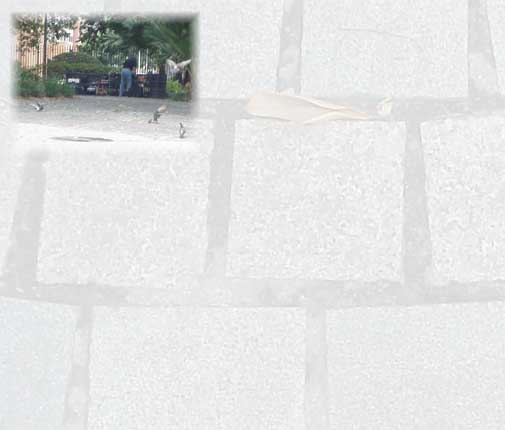Louis Moreau Gottschalk was baptized in New
Orleans’ St. Louis Cathedral in 1830. That makes him by far the
earliest angel on our tour. Of Jewish and Creole birth (1829), he
became America's first great composer and a pyrotechnic piano player.
His music dates from the first half of the 1800s and contains a unique
mix of the new world's gumbo. He lived, studied and toured in Europe,
composing rhythmic music from what he absorbed growing up in New
Orleans. It was clear Europe had never heard anything like Gottschalk.
He became America's first international superstar, winning praise from
the likes of Hugo, Chopin, Bizet, and Berlioz.
A place on the northern border of old New Orleans
was once used by the Houmas Indians as a sacred place for their annual
corn harvest prior to the arrival of the French. By the mid 1700s,
during the French colonial period, enslaved African vendors gathered
there and danced. This spot, now known as Congo Square, was within
earshot of Gottschalk’s childhood home. As a mature musician and
composer, Gottschalk paid tribute to the rhythms of the dances there,
among them the Calinda, the Congo and the Bamboula. Gottschalk’s
tune, Bamboula,
clearly exhibits the origins of New Orleans’ music. You can hear
cakewalks, ragtime, and jazz, all of which came later.
Congo Square is round... marked with swirling
patterns of bricks that dance to Eddie’s guitar version of
Gottschalk’s potent piano piece.

